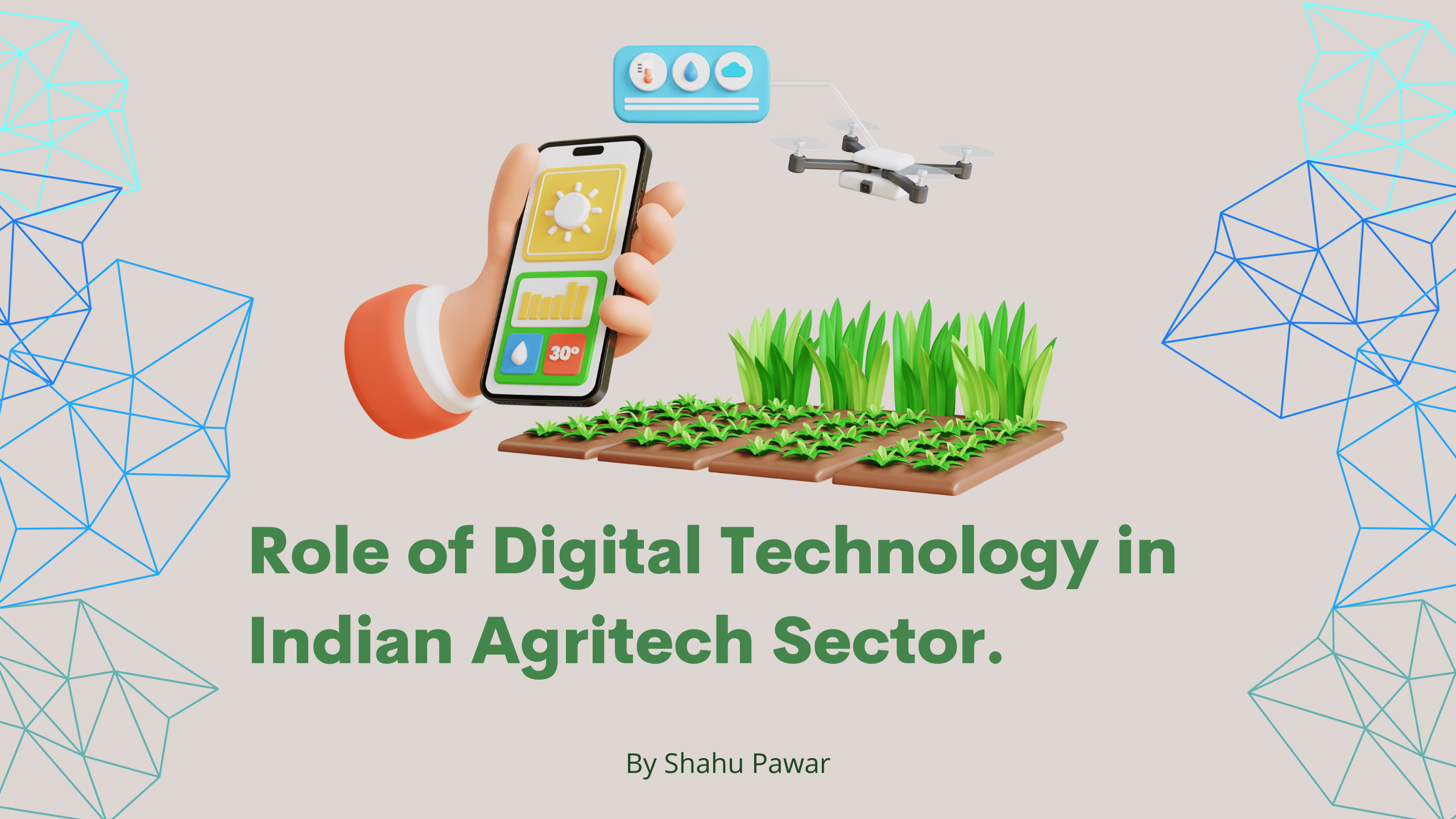Introduction:
Digital technology has emerged as a significant catalyst in the advancement of the agricultural sector worldwide. In India, where agriculture forms a vital part of the economy, the integration of digital technology, often referred to as agritech, is playing a transformative role. This article explores the various ways in which digital technology is shaping and revolutionizing the Indian agritech sector.

- Access to Information and Knowledge: Digital technology provides farmers with easy access to crucial information and knowledge. Through mobile applications, online platforms, and agricultural websites, farmers can access real-time weather updates, market prices, crop-specific information, best practices, and expert advice. This empowers them to make informed decisions regarding crop selection, planting techniques, irrigation schedules, pest management, and marketing strategies.
- Precision Farming and IoT: Digital technology enables precision farming practices through the integration of IoT (Internet of Things) devices and sensors. Farmers can monitor and manage their farms remotely by collecting data on soil moisture, temperature, humidity, and crop health. This data, combined with advanced analytics, helps optimize resource allocation, irrigation, fertilization, and pest control. Precision farming improves crop yields, reduces costs, minimizes environmental impact, and enhances overall farm efficiency.
- Farm Management Software: Digital farm management software provides farmers with tools to streamline and automate their operations. These software platforms assist in crop planning, inventory management, financial tracking, labor management, and record-keeping. By digitizing and centralizing data, farmers can make data-driven decisions, track performance metrics, and optimize resource utilization. Farm management software enhances operational efficiency, reduces paperwork, and improves overall farm productivity.
- Market Linkages and E-commerce: Digital technology has facilitated direct market linkages for farmers through e-commerce platforms and online marketplaces. Farmers can showcase their produce, connect with buyers, and negotiate fair prices without the involvement of intermediaries. E-commerce platforms provide access to a broader customer base, ensuring better market opportunities and reduced post-harvest losses. Additionally, digital platforms offer market intelligence, demand forecasting, and supply chain management tools, enabling farmers to make informed marketing decisions.
- Financial Inclusion and Agri-Fintech: Digital technology has played a significant role in promoting financial inclusion for farmers in India. Agri-fintech platforms provide accessible and affordable financial services, including digital payment solutions, crop insurance, credit facilities, and mobile banking. Digital transactions reduce cash handling, ensure transparency, and enable seamless financial transactions between farmers, buyers, and financial institutions. Agri-fintech solutions bridge the financial gap for farmers, promoting their economic stability and growth.
- Data Analytics and Artificial Intelligence: Digital technology facilitates the collection and analysis of vast amounts of agricultural data. Through data analytics and artificial intelligence (AI), valuable insights can be derived regarding crop diseases, yield predictions, soil health, market trends, and optimal farming practices. AI-powered algorithms help in early disease detection, pest management, and yield optimization. Data-driven decision-making enhances farming practices, increases productivity, and mitigates risks.
Conclusion:
Digital technology has revolutionized the Indian agritech sector, providing farmers with access to information, precision farming tools, farm management software, direct market linkages, financial services, and data-driven insights. The integration of digital technology has the potential to enhance productivity, profitability, and sustainability in Indian agriculture. Continued investment, innovation, and awareness are necessary to ensure widespread adoption of digital solutions and to empower farmers with the tools they need to thrive in the digital era.

